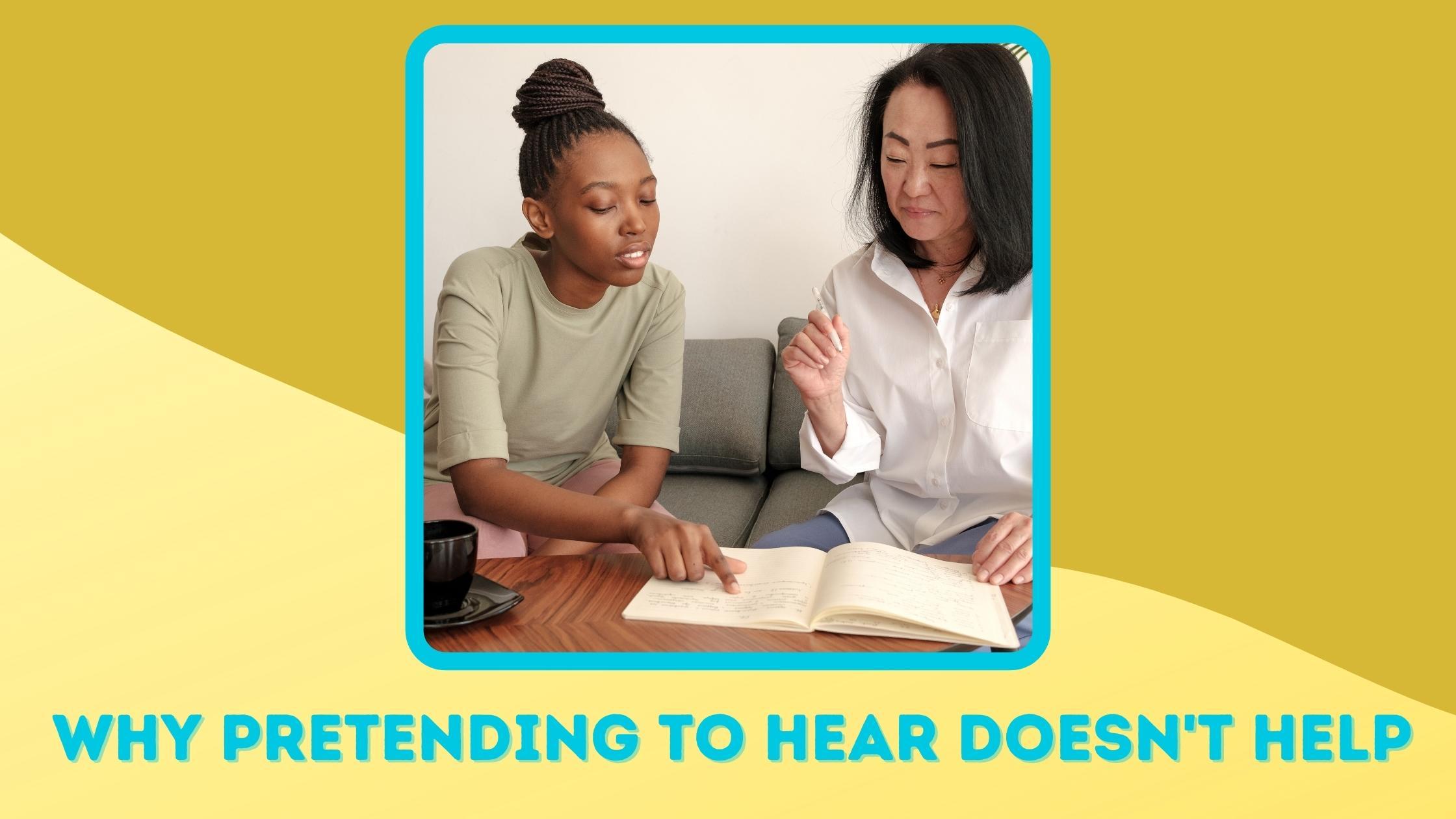
- Exploring the Genetic Landscape of Hearing Loss: Understanding the Role of Genetics - April 15, 2024
- The Hazards of Pretending to Hear - March 25, 2024
- Navigating the World of Cochlear Implants: A Comprehensive Guide - March 15, 2024
There are so many temptations to take the easy way out. We face them daily, whether it’s choosing not to see a person who needs our help or telling a white lie to avoid a confrontation. Each instance is different, and yet, each time we decide to deflect and hit the easy button, we reinforce that habit.
Sure, sometimes circumstances prevent us from choosing the higher road, but when it comes to pretending to hear, the easy way out can backfire dramatically. Instead of avoiding facing our hearing loss head on, make it a point to begin flexing your authenticity muscle and show up as your real self — hearing loss and all.
Hearing loss is everywhere
It might surprise you to learn just how prevalent hearing loss is. While it’s a condition we rarely talk about, approximately one in eight people in the United States over the age of 12 has documented hearing loss in both ears.
With age, the rate of people experiencing hearing loss increases. Age remains the number one predictor of hearing health challenges. Among folks over the age of 65, around one in three adults has trouble hearing. When people reach 85 years of age, it’s safe to assume that nearly half of their peers have hearing loss.
Why do we pretend to hear
It makes sense that in moments of uncertainty of what was said to us that we might just smile and nod. We’ve all done it — and people with completely healthy hearing have, too! As humans, we are social creatures, and being accepted by our “pack” is a desire ingrained deeply in our DNA. Being accepted into a group meant safety in our cavemen days, and might have even been the difference between life and death.
However, the stakes are much lower when you’re attending a birthday party for a family member or meeting up with old friends at a cocktail party. Pretending to hear can save your ego from experiencing a bump, but it probably won’t save your life.
How pretending to hear can backfire
In fact, trying to avoid acknowledging that you’re having trouble hearing can lead to a much more excruciating moment of embarrassment. A majority of the time, a nod and a smile can get you out of admitting that you have hearing loss, but if you’re called out on the bluff, the moments afterward can be awkward. You have to further lie or explain, potentially backtracking into admitting what you didn’t want to in the first place: that you have hearing loss.
What can be gained by admitting difficulty hearing
What’s so bad about hearing loss, anyways? We’ve already discussed the fact that many people experience the condition. In fact, it’s one of the leading chronic health conditions in the country. Many people live with less than healthy hearing every day and you probably encounter quite a few out in the world. What if we were more upfront about hearing loss so that it lost its old-fashioned stigmas?
We might want to fly under the radar with our hearing troubles because it is a condition that makes us feel weak or old. But, like so many of our individual quirks and habits, the people around us probably don’t think any differently about us just because we have hearing loss. More likely, it’s our own personal ideas about ourselves that show up in the negative thinking and shying away from confronting hearing loss.
This kind of thinking is what keeps most people from choosing to treat hearing loss until it’s become quite unmanageable. Practicing disclosing hearing loss can help us accept that our hearing has changed and allows us to take future action, like choosing an intervention, that can significantly improve our quality of life.
Strategies for confronting hearing loss
Choose a sentence or group of sentences that feels good to you. You can start with the options below and make your own additions or changes so that it feels natural. Practice your disclosure statement until it feels like something you can say easily in the moment.
“I have trouble hearing, can you speak up or speak a little slower?”
“I have some hearing loss, can we move to a quieter corner so that I can hear you better?”
“My hearing loss can make it hard for me to understand you, could you say that again using different words?”
Schedule a hearing consultation today
Once you’ve decided to confront and accept your hearing loss, a whole world of options will open up. Our team of hearing health professionals can guide you through the easy process of a hearing exam when you’re ready for a confirmed diagnosis. From there, if you are a good candidate for hearing aids, we can walk you through your options and even try out different models. No one ever said that doing brave things is easy, but we often hear how worth it bravery can be in the long run.
